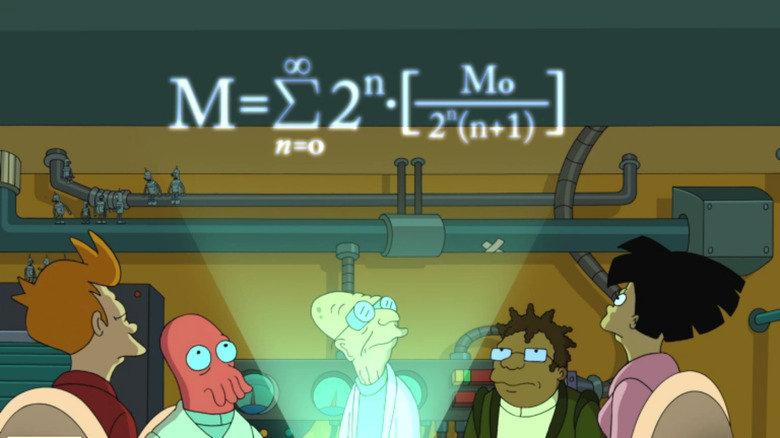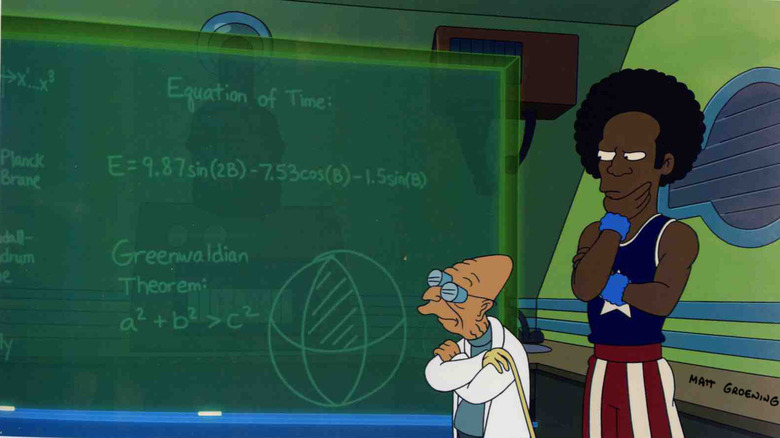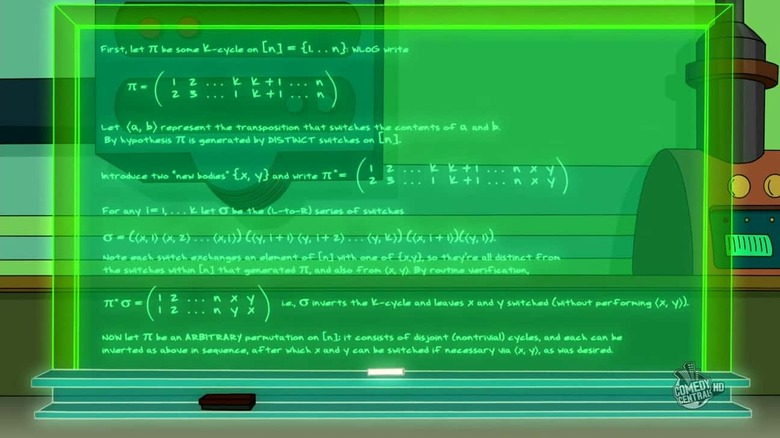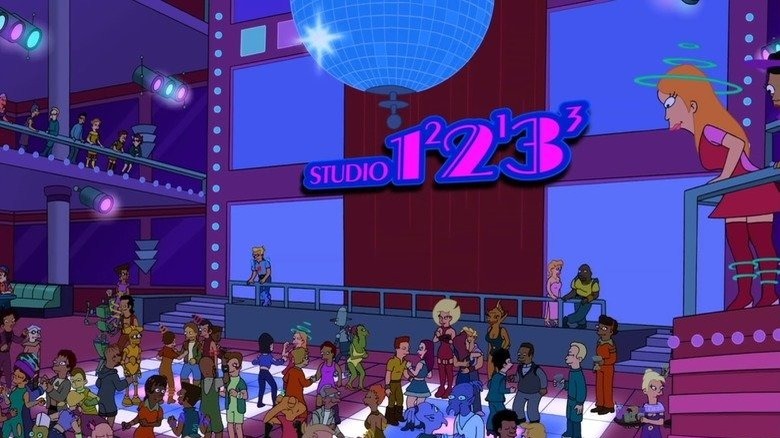How Futurama Tried To Save Science's Pop Culture Reputation
When it comes to science and mathematics, I'm more of a Philip J. Fry than a Professor Farnsworth, but even I can appreciate the way the writers of "Futurama" clearly know their stuff. It would be easy for the series to completely fudge the details on some of the more scientific concepts, but "Futurama" combines comedy with some seriously nerdy science, in part because showrunner David X. Cohen is a physicist. Along with his team of incredibly intelligent writers, Cohen managed to make "Futurama" the perfect pairing of smart science and silly stereotypes.
While speaking at a conference for the Institute for Pure & Applied Mathematics, Cohen said that sometimes it's a little tricky to balance the show's need to be funny with its need to be a positive look at science and math. Good news, however — they seemed to have found the perfect formula.
Comedy and logic make strange bedfellows
Sometimes, comedy requires simplicity, and that can really hinder the complexities of science and math. Cohen explained that unfortunately, that can leave some of the brainier writers feeling a little guilty:
"The basic mechanism of 'The Simpsons' and 'Futurama' is that many of the characters start as the most obvious stereotypes of whatever they're supposed to be, just to give people a starting point so they understand the show, and then over the years you try to make the character weirder, stranger, more of a specific individual. That's sort of the process reason behind it, it doesn't really relieve us of any guilt for doing it that way."
Cohen's description of the characters is on-point, as Professor Farnsworth (voiced by Billy West) starts out as a stereotypical goofy mad scientist, but as the series evolved, so did he. The other genius characters, like Hermes Conrad (Phil LaMarr) and Dr. Zoidberg (also West) also become more complex as time goes on, and all three of these silly scientists eventually ended up getting to show off their scientific prowess.
A positive view of science and the people who study it
There's a lot of wacky humor and intentionally stereotypical characters on "Futurama," but Cohen and his team fought hard to make sure that science was championed whenever possible. The media has a tendency to villainize science, as people frequently fear what they don't understand. But on "Futurama," Cohen and his team of writers sought to enlighten viewers on the fact that science is good, actually:
"Despite the stereotypes and all, we generally did make an attempt to portray science and math in a positive way where you could tell, I think, that the writers actually had a passion for the things we were writing about, and we were not belittling them or making fun of them, we were using them as part of the plot, we were even using them to solve the problems, as you saw sometimes with Ken's theorem."
Ken's theorem is a body-switching theorem written and proven by "Futurama" writer Ken Keeler, who happens to have a Ph.D. in applied mathematics from Harvard University. He figured out a way that Amy (Lauren Tom) and Farnsworth could get back to their own bodies after too much Freaky Friday-style silliness, and managed to prove it using math that's way beyond my comprehension. That's pretty freaking cool.
A bit of nuance and some number funnies
Cohen and the other writers understand that sometimes science isn't morally cut-and-dry, especially in instances where the individual processes are still in their infancy of being explored in our own time. Genetic engineering can be abused and is potentially very dangerous, and there are plenty of shows and movies that detail the possible negatives, but "Futurama" pointed out that there are potential positives, too, like curing disease. In the end, the writers just want to explore science and investigate ideas instead of being afraid of them, and that's truly honorable.
Of course, since there are a bunch of big-brained nerds in the writer's room, that means there are lots of math and science jokes hidden in the background, too. One that even I managed to figure out was Studio1²2¹3³, because those numbers end up totaling Studio 54. They made math jokes accessible to people with English degrees, which might actually be a miracle.
"Futurama" is a fantastic, funny series that's also surprisingly smart, and that's because Cohen and his writers clearly care.



